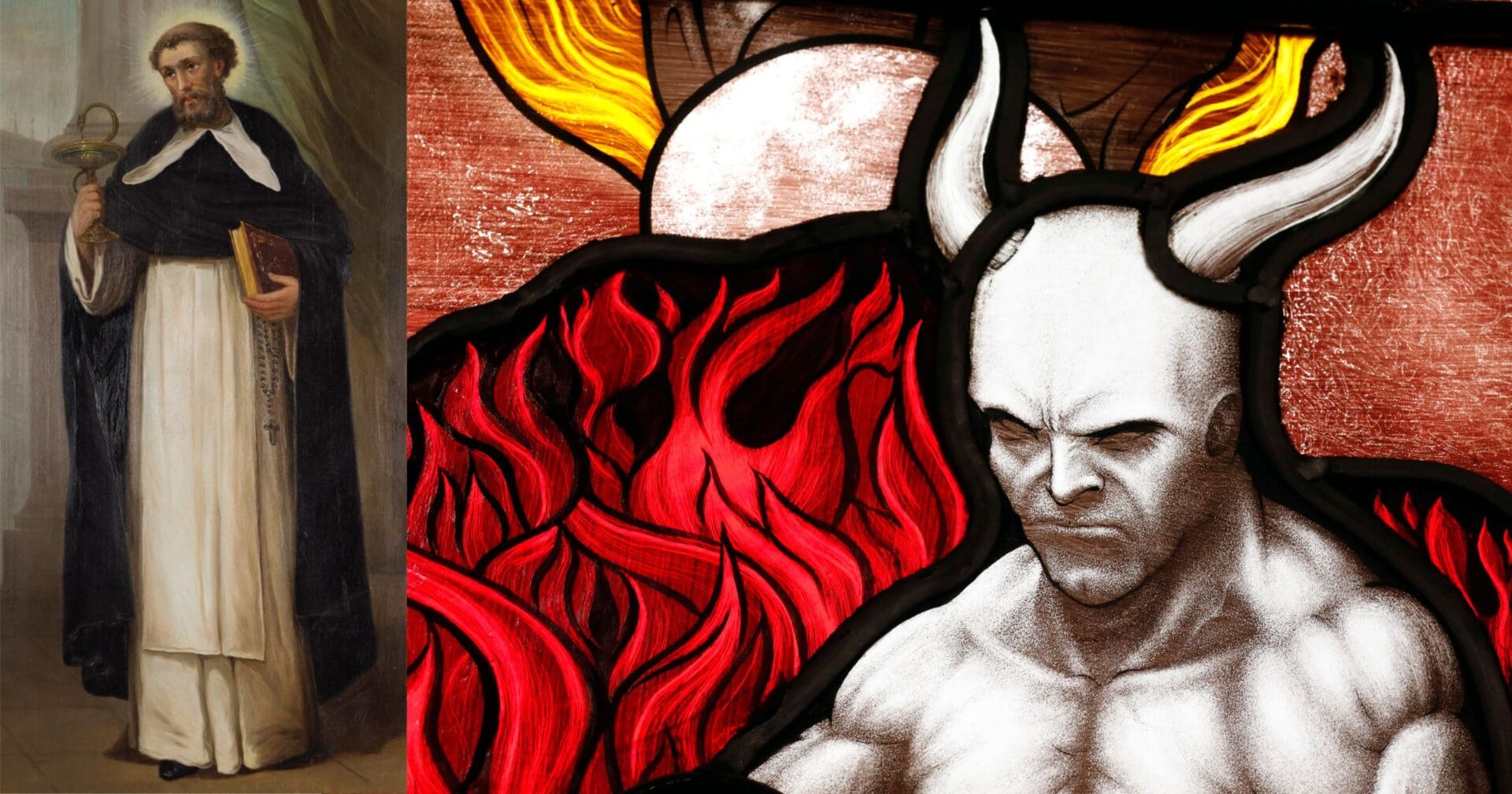“Lord, give me chastity, but not yet.” If one of the Church’s most influential Fathers was a hedonist until 30, even one who “sold their soul” to the Devil can become a saint.
Meet Blessed Giles of Santarem, a Portuguese Dominican scholar born circa 1185, died May 14th, 1265. His father a well-off castellan, Giles was destined for the ecclesiastical life; the young boy, however, wished to become a physician.
Setting out to Paris from his studies at Coimbra in Central Portugal, it is said on his travels he was propositioned by a stranger who would offered to teach him necromancy in Toledo for a price: he must sign over his soul to Satan, signing the compact with his blood.
Obeying and giving over his soul to the Evil One, he devoted 7 years of his life to the study of magic under Satan’s direction. He then travelled to Paris where he effortlessly obtained a medical degree, able to cure many afflictions.
One night, Giles was approached in his study by a giant spectral knight, demanding the unrepentant now-saint change his wicked ways. The next night, the ghost appeared again and warned Giles of his certain death if he did not repent.
Returning to Portugal, Giles joined the Dominicans in 1221 at a newly built monastery in Palencia – a city in north/northwest Spain – and was sent to Santarem shortly after. For 7 years he lived a life of prayer and penance, haunted by the contract he signed with the Devil.
At the end of the 7 years, it is said the Blessed Virgin compelled Satan to surrender the compact and place it up before the altar. On March 9th, 1748, Pope Benedict XIV canonized Giles, elevating a man who supposedly formerly his sold to Satan but repented, to the sainthood.
Photo credit: Public Domain via Wikimedia Commons | Editorial credit: godongphoto / Shutterstock.com















[…] Creating Art as an Act of Prayer, Featuring Artist Timothy P. Schmalz – Catholic Exchange Did This Saint Really “Sell His Soul to the Devil”? – Billy Ryan at uCatholic Why Does Our Lady of Fatima Call Us to the Daily Rosary? – […]
I thought this would be about St. Theophilus of Adana.
Most people today would casually dismiss such a story, but look at the world we live in. Does the evidence really show that we exceed all other generations in wisdom and holiness and insight? If this sounds very different from what your parish priest says in his homilies, who is painting a misleading picture of reality?